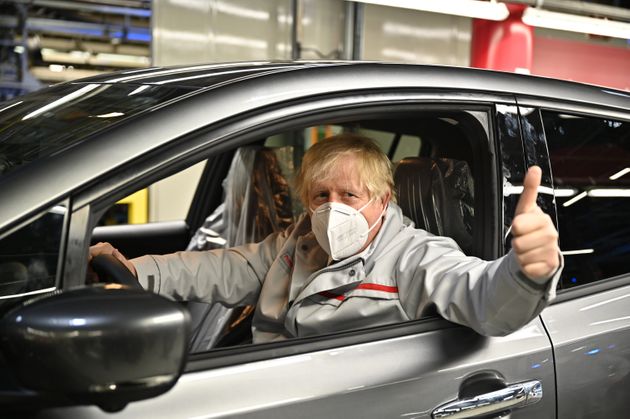
You’re reading The Waugh Zone, our daily politics briefing. Sign up now to get it by email in the evening.
Ever since Gordon Brown blundered into giving pensioners a measly 75p rise in their pension, politicians have been terrified of upsetting the grey vote. Back in 1999, the Treasury was so pleased with low inflation that it had failed to spot the PR disaster of the tiny increase it entailed in all index-linked benefits.
Brown never repeated the error, and indeed paid his penance by swiftly making his temporary winter fuel allowance a permanent fixture, as well as introducing free TV licences for the elderly and pension credit.
During the 2010 election, David Cameron was bounced by Brown into keeping the measures. The Tory leader went further by bringing in the now infamous ‘triple lock’ that guarantees to uprate the basic and state pension in line with earnings, prices or 2.5%, whichever is the higher.
In 2015, the Conservatives did dip a toe in the dangerous waters of cutting “pensioner perks”, as some called them, announcing they would withdraw state funding of the free TV licence for over-75s and ask the BBC to foot the bill instead. The blame game still plays out, but a survey by AgeUK found that Tory voters will be hit hardest.
Fast-forward to today and it appears that Rishi Sunak is preparing to think the unthinkable and not honour the triple lock pledge that was reaffirmed in the last Tory manifesto. The chancellor has in some ways the perfect cover in the form of the pandemic and the huge costs it has inflicted on the whole nation.
The young in particular have been hit hard by joblessness, on top of student debt and the UK’s chronic inability to offer them affordable housing. With the third wave of Covid powering a fresh tsunami of cases among the under-30s, it seems they are in for their share of ill-health too. While ministers seem bent on a form of herd immunity, long Covid is the fear that stalks many a young person’s Whatsapp chat.
The demands for “intergenerational fairness” have been getting louder and Sunak seems to have listened. Of course, he was subtle about it on the breakfast sofa shows, but the message seemed pretty clear: the triple lock will be tweaked, amended, possibly suspended to save valuable cash.
In a masterclass of political hint-dropping, the chancellor said that yes, the triple lock was still government policy “but I very much recognise people’s concerns”. “We want to make sure the decisions we make and the systems we have are fair, both for pensioners and for taxpayers.” It was straight out of the overseas aid playbook: the overall aim is to stick to the manifesto but the pandemic has forced a rethink.
That’s why the chatter in Whitehall and among MPs is that the Treasury is considering a possible suspension of the triple lock for one year only, just as happened on the pledge to spend 0.7% of GDP on aid. The hint was all but official when even Boris Johnson refused to kill off the speculation on Thursday. “We’ve got to have fairness for pensioners and the taxpayers,” he said.
Whereas Brown was trapped into a PR nightmare by linking pensions to (low) inflation, Sunak is obviously keen not to suffer from a similarly self-inflicted, locked-in syndrome. With pensions now linked earnings (which are soaring at 8%), even a temporary way of avoiding the £3bn cost would save the Treasury serious money. Pensioners could still get a rise, just not a mega rise.
Insiders stress that nothing is decided and it will all depend on how the numbers look later in the year ahead of the spending review, but no one is killing the idea of a brief suspension of the full triple lock. The fact that both the PM and chancellor sounded like they were coordinating their message (on various outlets) shows there is a softening up exercise going on at the very least.
With Keir Starmer’s shift from constructive to destructive opposition, Labour will inevitably try to seize on any change as an outrageous theft from pensioners’ purses. But what everyone will be trying to gauge is just how many Tory backbenchers try to prevent any unpicking of the lock. Will those who were gung ho about a temporary cut to aid now bite their tongues?
It will certainly be a test of Sunak’s political skills, though he does perhaps have time on his side. Just as with the international development ‘cut’, opting to do this in the middle of a parliament (and the middle of a pandemic) gives him room to make up for it in the run up to the next election.
It could also be that on the triple lock the chancellor realises that over the long term he could burnish rather than tarnish his reputation, not least among younger voters who see this as a fairness issue.
The furlough scheme has already helped make him the most popular politician in the UK and he may think he can afford to burn a bit of that capital now. Ending the £20 uplift in Universal Credit and jacking up corporation tax prove he is unafraid of making unpopular decisions.
If he does go ahead and take the bold option on pensions, it would certainly signal that Sunak really does have his eyes on the main prize. Unlike his ‘buy now, pay later’ boss, the chancellor cannot be seen to rely on borrowing as his way of balancing the books. If he can project himself to Tory MPs as firm but fair on tax and spend, he may have a decent crack at No.10 himself.



















